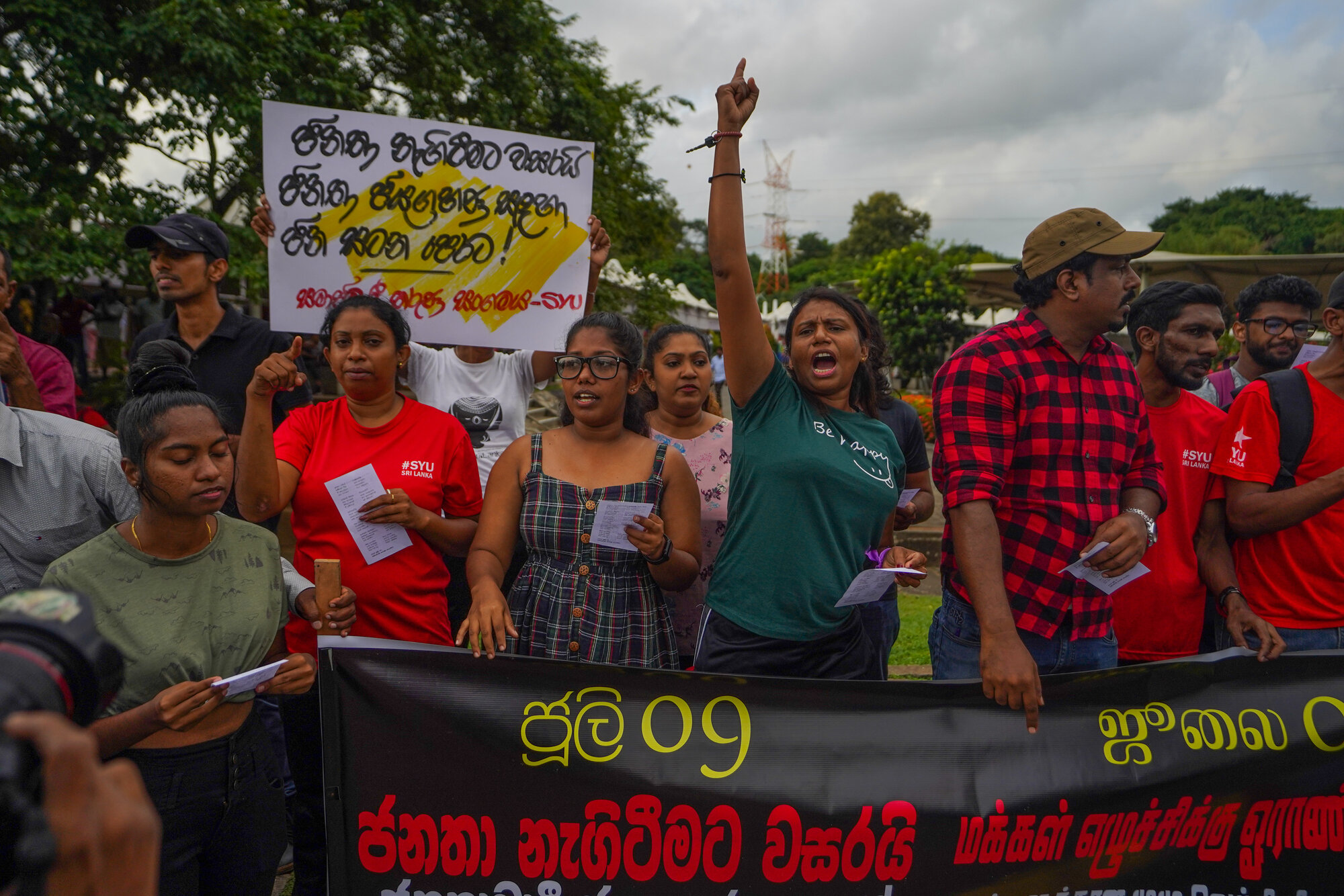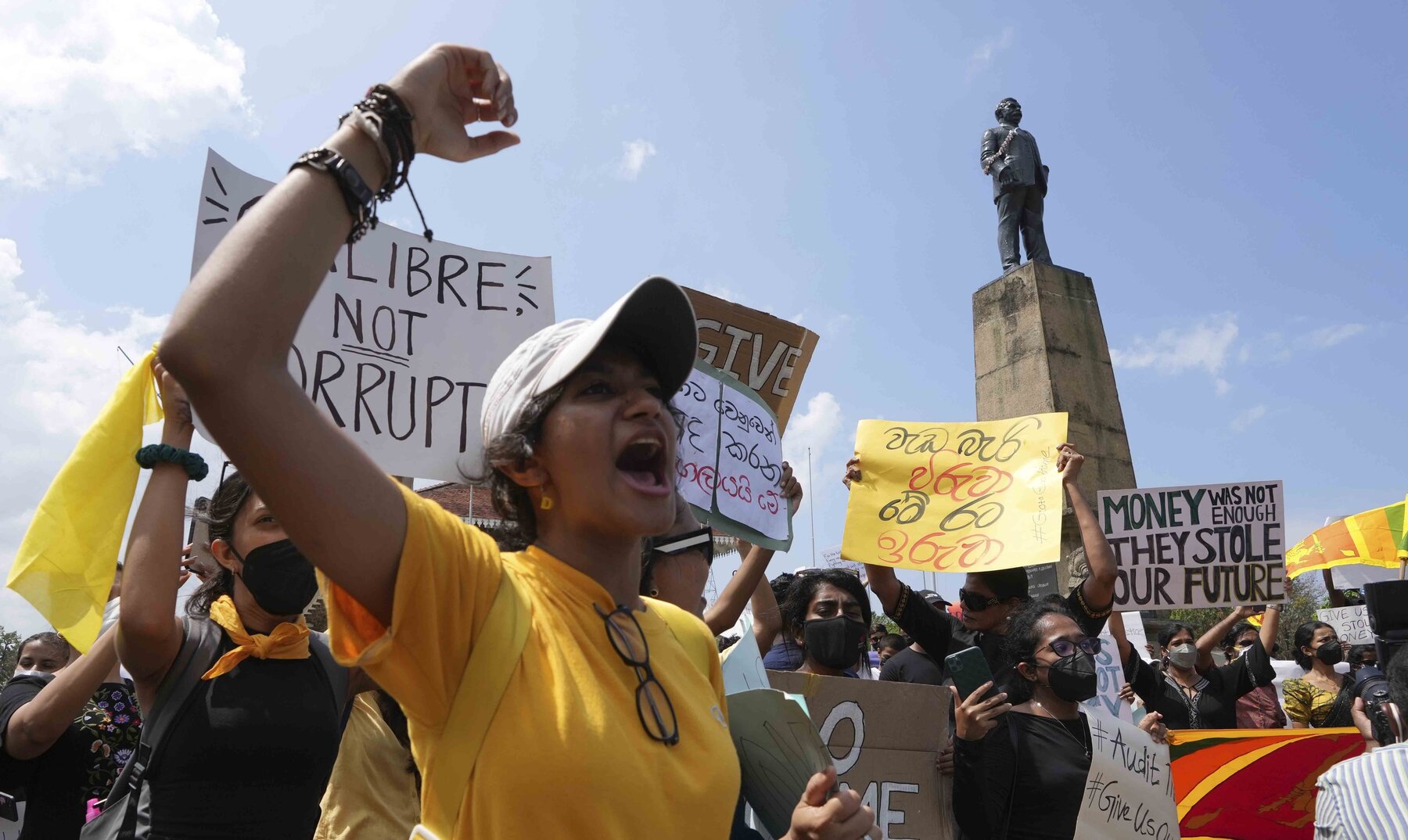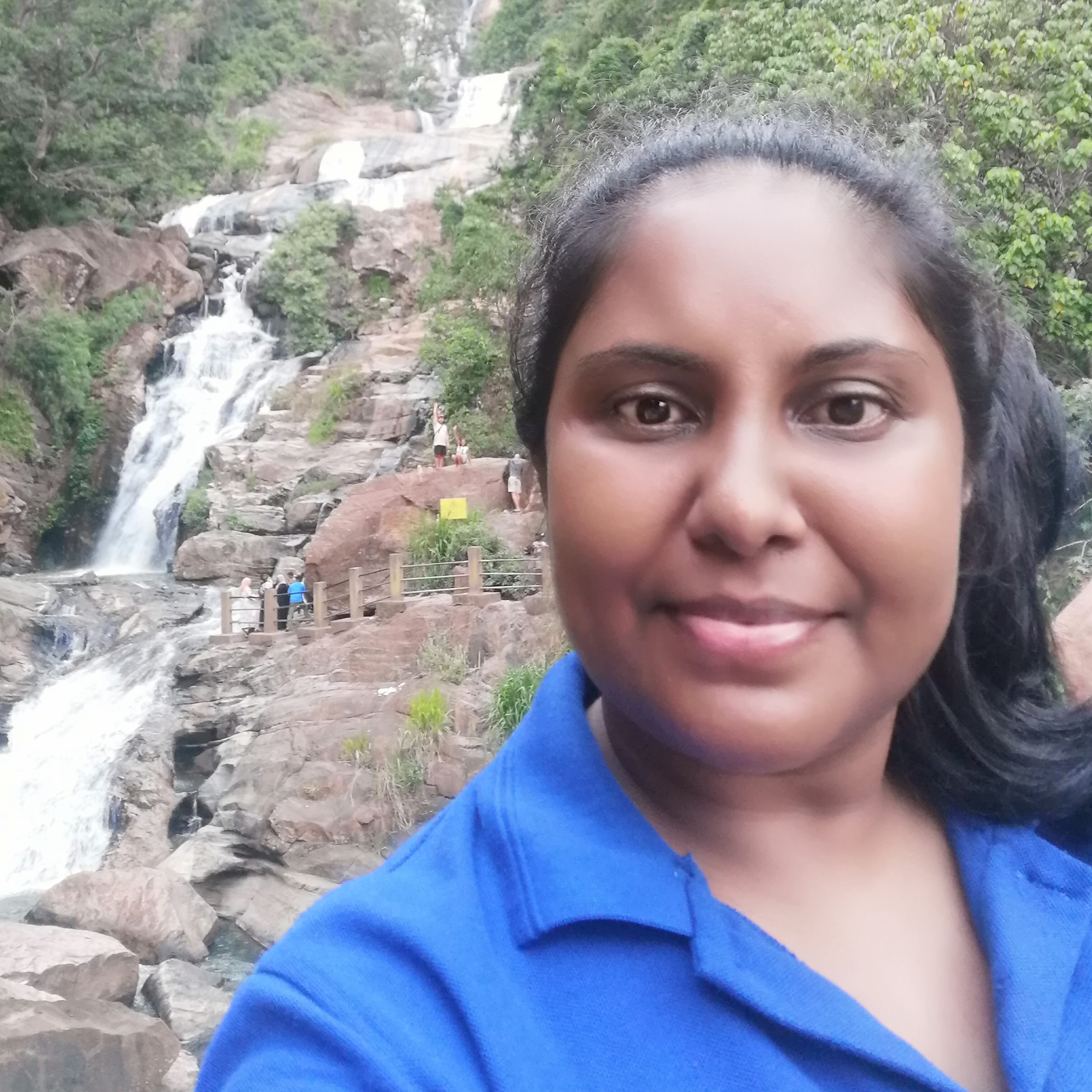Protest leads to prison in Sri Lanka
Dileepa Manawadu wanted to show her children the power of dissenting against her government, only to find herself charged under anti-terror laws. Ayodhya Krishani Amarajeewa reports.
When Dileepa Manawadu found herself in prison, surrounded by rats, she realised the freedom of peaceful assembly guaranteed by Sri Lanka’s constitution wasn’t going to help her. In July 2022, Dileepa and her friend, Melani, had been about to join a protest in Colombo when they were arrested. They were pushed into a jeep and transferred to Maradana Police Station, brought in under the violation of Police Ordinance Article 77 and because of unlawful assembly in the recently declared high security zone belittling the right to freedom of expression guaranteed by the Constitution of Sri Lanka.
This was the reality in Sri Lanka after Ranil Wickramasighe became the President of Sri Lanka in July 2022. When civilians first took to the streets in April 2022, demanding then President of Sri Lanka, Gotabaya Rajapaksha, to step down, Dileepa joined in. “The governance... of public infrastructure, public institutions, corporates, was dysfunctioning,” she said.

“Gota Go Home,” was a key slogan, sung during the protests. Rajapaksha is the brother of President Mahinda Rajapaksha, who remains revered for ending the 30-year war between the Liberation of Tamil Tigers of Elam (LTTE) and the Sri Lankan government in 2009. But since then, the family name - and the government they ran - has been tarnished with allegations of corruption and nepotism. Dileepa joined the young people in Gota Go Gama (Gota Go Village) in Colombo, which had sprung up in response to the protests. Protesters established a library, a cinema and discussion forums. Discussions were held on how the masses can bring change to a country if there is a collective will. “Most of my time in Gota Go Gama was in the library,” said Dileepa. She found the work inspiring. “We didn’t know any of those people. They were strangers, but there was so much trust between us. It was such a welcoming space.”
Dileepa wanted many of those children who joined the Gota Go Village Library to be aware of the dissent against the regime. Her husband, Siffan, came up with the idea to create a storytelling space for children in the library. They got their seven-year-old son involved in the village. “I was telling him what was happening,” she said. “It’s our philosophy of parenting. We expose children to the environment they live in, in the safest way possible.”
Her little family of three became a part of Gota Go Village. Since the village was in an area the government had designated for protests, Dileepa felt comfortable bringing her child. “Because it was a library, it was quite easy for me to take him there,” said Dileepa. “We noticed lots of children were coming, as it was the holidays.” Dileepa felt there were so many inspirational stories she could tell children, so many inspirational characters who have changed the world. Modern heroes like Nelson Mandela and Mahathma Gandhi as well as unconventional characters like Rosa Parks and Maya Angelo are some of those biographies they discussed in the library. “I wanted to have the library space so these stories could be known to other people, to tell these stories not just for children, but also for adults.”
The library became a creche for other protesters. Yet, after the protestors finally managed to get President Gotabaya to step down in June 2022, the new President, Ranil Wickramasighe, ordered protestors arrested under emergency laws and the Prevention of Terrorism Act. Dileepa and her friend, Melani, were arrested even before they joined the protest at Lipton Circus. They were bystanders who were looking for an opportunity to pass the police barrier to get to the protest site. But the police were given orders by the President himself to arrest those who violated the emergency laws after he declared the city of Colombo a high security zone. Dileepa had no doubt that the arrest was purely a way to inflict fear among the protesters.
After a night in remand, Dileepa and her friend, Meloni, were released and an initial court date was set for January 2023. When they were called upon in court with 14 others, Dileepa realised the government had no case. “The police have no evidence to prove that we violated the ordinance. They claim we harmed public property and are at fault. But they did not have any video evidence or any other information to prove these accusations.” Subsequently, there were five more hearings without the police being able to provide a charge sheet for any of the arrested protestors. However, the judge continues to call them, and there is another hearing set in December 2024. She still has to be given reasons for her arrest. “A citizen who is dissenting is not a terrorist,” she says.
This new accusation was levied against protesters in an incident where a man refused to give his child to the police to prevent them from being arrested again for protesting in the Galle Face Green. Galle Face Green is a site where the public gathers to enjoy evenings looking at the sea and the sunset. Dileepa says she was sensitising children to the freedoms of citizens in a country like Sri Lanka. Frustrated, she says she will continue voicing her opinion in a country where laws are being abused by the executive power to crush the dissent of the masses.
The Author
More articles of the Author



